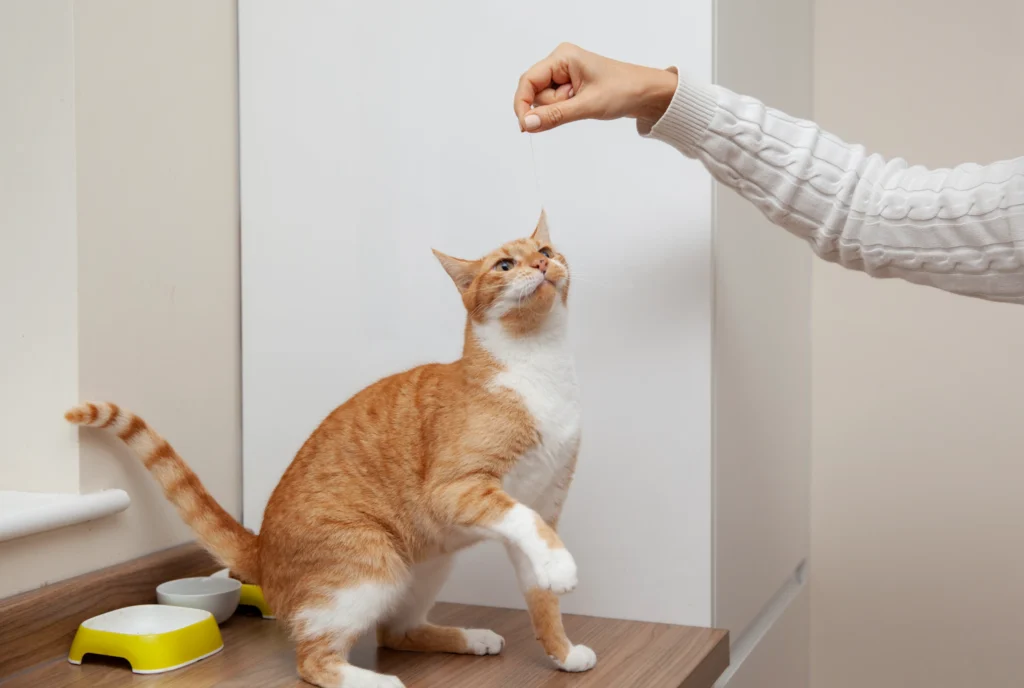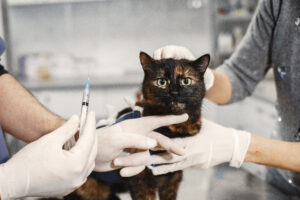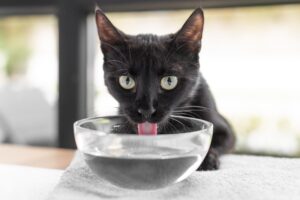Introduction
If you’ve noticed your feline friend sneezing more than usual, you might be wondering: why is my cat sneezing? While an occasional sneeze is perfectly normal, frequent sneezing in cats could indicate underlying health issues that require attention. As a responsible pet parent, understanding the difference between harmless sneezes and problematic ones is crucial for your cat’s wellbeing.
Cats sneeze for many of the same reasons humans do. However, when your cat keeps sneezing but seems fine otherwise, it can be confusing to determine whether a vet visit is necessary. This comprehensive guide explores the common causes of frequent cat sneezing, potential treatments, and when to seek professional help.
Whether you’re dealing with a cat sneezing a lot suddenly or noticing gradual increases in sneezing in cats, this article will help you understand what might be happening with your furry companion and how to help them feel better.
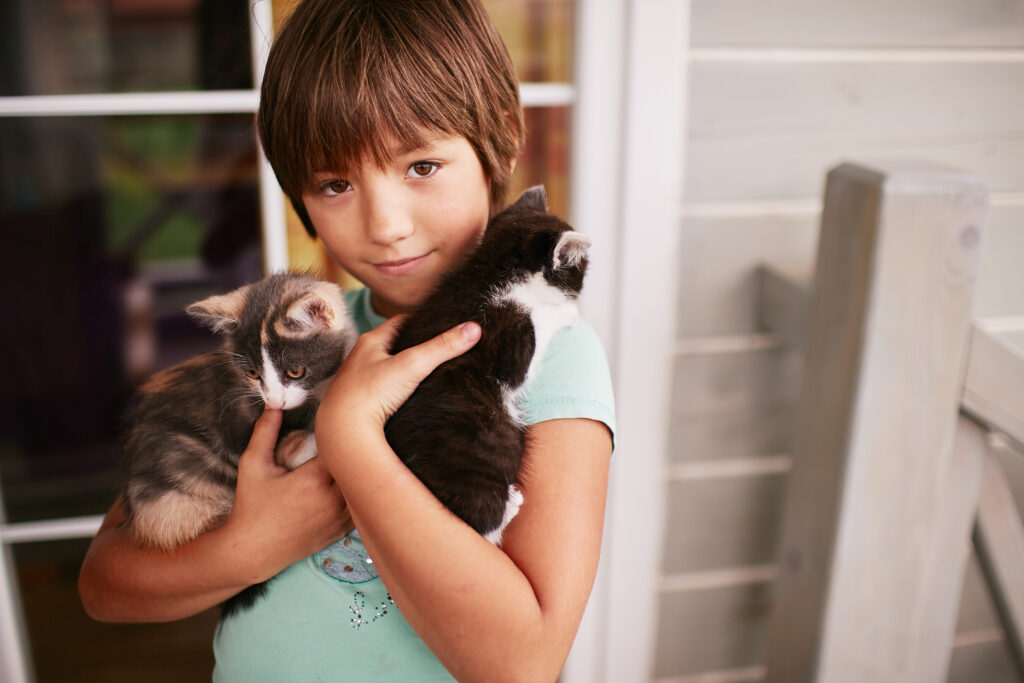
Understanding Normal vs. Problematic Cat Sneezing
Before diving into the causes of why is my cat sneezing, it’s important to understand what constitutes normal sneezing versus problematic sneezing patterns.
When Sneezing Is Normal
Occasional sneezing in cats is completely normal. Just like humans, cats may sneeze to clear their nasal passages of dust, pollen, or other irritants. If your cat sneezes once or twice and then continues with their regular activities without showing any other symptoms, there’s usually no cause for concern.
When to Worry About Your Cat’s Sneezing
You should pay closer attention when:
- Your cat is sneezing a lot consistently
- The cat sneezing and runny nose occur together
- You notice your cat sneezing and watery eyes
- There’s evidence of cat sneezing and coughing
- Your cat shows signs of discomfort or lethargy
- The sneezing persists for more than a few days
- You observe other concerning symptoms like cat sneezing and not eating
When these symptoms appear, it might be time to investigate the underlying causes of your cat’s sneezing episodes and determine whether veterinary attention is needed.
6 Alarming Causes of Cat Sneezing That Could Be Serious
1. Upper Respiratory Infections (URIs)
One of the most common reasons for why is my cat sneezing excessively is an upper respiratory infection, often referred to as the “cat cold.” Cat upper respiratory infection is typically viral, but can sometimes be bacterial or fungal.
Signs of a URI include:
- Persistent cat sneezing a lot
- Cat sneezing and runny nose with clear or colored discharge
- Cat sneezing and watery eyes
- Congestion or audible breathing
- Lethargy
- Decreased appetite
Feline herpesvirus and calicivirus are often responsible for these infections. While many cases resolve on their own with supportive care, severe or persistent infections may require veterinary treatment, especially if your cat has stopped eating or is showing signs of dehydration.
Cat cold symptoms can mimic human colds, but it’s important to remember that human cold medicines are toxic to cats. Never administer human medications without veterinary guidance.
2. Bacterial Infections
Secondary bacterial infections often accompany viral URIs, making your cat’s condition worse. Bacterial infections can cause more severe symptoms and may lead to cat sneezing blood if left untreated.
Bacterial infections typically require antibiotics prescribed by a veterinarian. If your cat’s sneezing doesn’t improve with time or is accompanied by thick, colored nasal discharge, a bacterial infection might be the culprit.
Mycoplasma and Bordetella are common bacterial culprits for sneezing cat causes that require medical attention.
3. Allergies and Environmental Irritants
Environmental factors are a common reason why is my cat sneezing occasionally. Allergies can cause chronic sneezing episodes in cats, similar to how humans react to allergens.
Common allergens and irritants include:
- Dust and dust mites
- Pollen
- Perfumes and air fresheners
- Cigarette smoke
- Cleaning products
- Cat litter dust (especially clay-based varieties)
- Mold spores
Cat allergies symptoms often include:
- Frequent cat sneezing
- Itchy skin or excessive grooming
- Watery eyes
- Coughing or wheezing
- Skin rashes or redness
If you notice your cat sneezing in specific environments or after using certain products, allergies may be the cause. Eliminating potential allergens from your home can help reduce your cat’s symptoms.
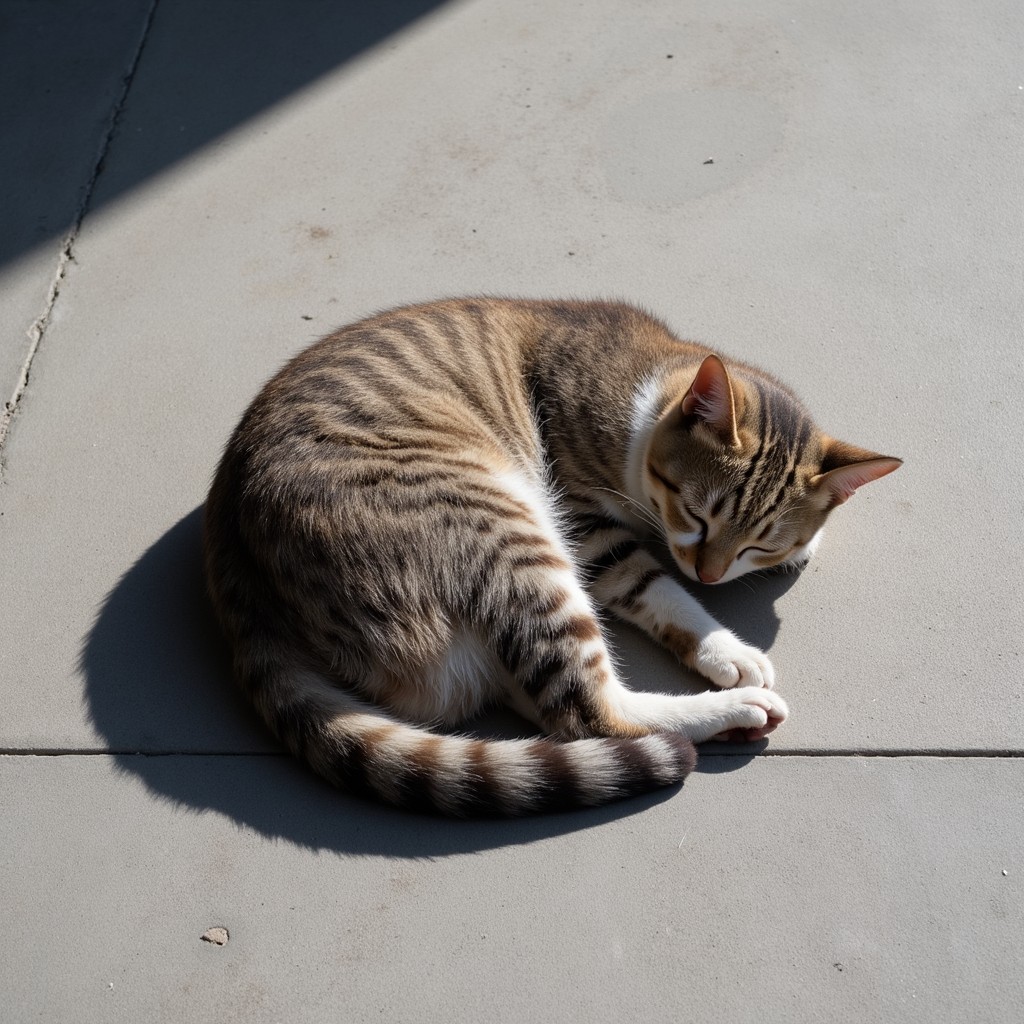
4. Foreign Objects
Cats are curious creatures that explore their environment with their noses. Sometimes, why is my cat sneezing can be explained by a foreign object lodged in their nasal passage. Items like blades of grass, small toy parts, or even insect parts can become trapped in your cat’s nose, causing irritation and sneezing.
Signs that a foreign object might be causing your cat’s sneezing include:
- Sudden onset of frequent cat sneezing
- Pawing at the face or nose
- Sneezing primarily from one nostril
- Visible discomfort
- Potential cat sneezing blood in small amounts
Foreign objects typically require veterinary removal, as they can cause serious damage if left untreated or if improper removal is attempted at home.
5. Dental Disease
Surprisingly, dental problems can be the answer to why is my cat sneezing in some cases. When infection from dental disease spreads upward into the nasal passages or sinuses, it can cause sneezing and nasal discharge.
Advanced dental disease, particularly tooth root abscesses in the upper teeth, can create a direct pathway for bacteria to enter the nasal cavity. This can lead to chronic cat sneezing and runny nose symptoms that don’t resolve until the dental issue is addressed.
Signs that dental disease might be causing your cat’s sneezing include:
- Bad breath
- Difficulty eating
- Facial swelling
- Cat sneezing and not eating
- Drooling
- Nasal discharge that may be foul-smelling
Regular dental check-ups are essential for preventing these issues and may resolve mysterious cases of chronic sneezing.
6. Nasal and Sinus Polyps or Tumors
In more serious but less common cases, why is my cat sneezing persistently might be due to growths in the nasal passages or sinuses. Nasal polyps (benign growths) or tumors (which may be benign or malignant) can block nasal passages and cause chronic sneezing.
These conditions are more common in older cats but can occur at any age. Other symptoms may include:
- Noisy or difficult breathing
- Facial deformity
- Cat sneezing blood
- Chronic or recurrent nasal discharge
- Decreased appetite and weight loss
Diagnosis typically requires advanced imaging like CT scans or rhinoscopy, and treatment options depend on the type of growth found. Early detection improves outcomes, so persistent unexplained sneezing warrants veterinary investigation.
Other Common Causes of Cat Sneezing
Fungal Infections
Fungal infections like cryptococcosis can cause sneezing in cats, especially in outdoor cats or those exposed to bird droppings. These infections are more common in certain geographical regions and can become serious if left untreated.
Vaccine Reactions
Some cats may experience cat sneezing after vet visit if they’ve received intranasal vaccines. This type of sneezing is usually temporary and resolves within a few days. If sneezing persists beyond a week or is accompanied by other concerning symptoms, contact your veterinarian.
Inflammatory Conditions
Chronic inflammation of the nasal passages, known as rhinitis, or inflammation of the sinuses, called sinusitis, can lead to frequent cat sneezing. These conditions may require long-term management under veterinary supervision.
Chemical Irritants
Household chemicals, cigarette smoke, perfumes, and cleaning products can all irritate your cat’s sensitive respiratory system. If you notice your cat sneezing a lot after using certain products, try removing them from your home or using them away from your cat.
Special Considerations for Kittens

Kitten sneezing a lot requires special attention. Young kittens have developing immune systems and are particularly vulnerable to upper respiratory infections. When kittens sneeze frequently, especially if they come from a shelter environment, prompt veterinary care is essential.
Signs that your kitten’s sneezing requires immediate attention include:
- Lethargy
- Poor appetite
- Cat sneezing and not eating
- Dehydration
- Eye or nasal discharge
- Difficulty breathing
Untreated respiratory infections in kittens can quickly become serious or even life-threatening, so don’t delay seeking veterinary care.
When to See a Vet: Should I Worry If My Cat Is Sneezing?
It can be difficult to determine when cat sneezing requires professional attention. Here are some guidelines to help you decide:
Seek Immediate Veterinary Care If:
- Your cat is struggling to breathe
- You notice cat sneezing blood
- Your cat has stopped eating entirely
- Your cat is extremely lethargic or unresponsive
- You observe significant facial swelling
- Your kitten is showing any signs of respiratory distress
Schedule a Non-Emergency Vet Visit If:
- Frequent cat sneezing persists for more than a few days
- Your cat shows cat cold symptoms alongside sneezing
- You notice thick or colored nasal discharge
- Your cat’s appetite has decreased
- Your cat seems uncomfortable or in pain
- Cat sneezing and watery eyes continue beyond 48 hours
- You’re concerned about your cat sneezing and coughing
When in doubt about why is my cat sneezing, it’s always better to consult with a veterinarian. They can determine whether your cat’s sneezing is cause for concern and recommend appropriate treatment.
Diagnosis: How Vets Determine Why Your Cat Is Sneezing
When you take your sneezing cat to the vet, they’ll typically perform several diagnostic procedures to determine why is my cat sneezing:
- Physical examination: The vet will check your cat’s overall condition, vital signs, and look for visible abnormalities.
- Medical history: Details about when the sneezing started, any pattern to the sneezing, and other symptoms are important diagnostic clues.
- Laboratory tests: Blood work, urinalysis, and testing of nasal discharge can help identify infections.
- Imaging: X-rays or more advanced imaging like CT scans may be needed to check for foreign objects, tumors, or structural abnormalities.
- Rhinoscopy: In some cases, a small camera may be used to look directly into the nasal passages.
- Biopsy: If growths are found, a small tissue sample may be taken for analysis.
Based on these findings, your veterinarian can recommend appropriate cat sneezing treatment options.
Treatment Options for Cat Sneezing
The appropriate cat sneezing treatment will depend on the underlying cause. Here are some common approaches:
Viral Infections
For viral cat upper respiratory infection:
- Supportive care and monitoring
- Ensuring proper hydration and nutrition
- Potentially antiviral medications in severe cases
- Keeping the cat’s face clean of discharge
- Isolating infected cats to prevent spread to other cats
Bacterial Infections
For bacterial causes of why is my cat sneezing:
- Prescription antibiotics (oral or injectable)
- Supportive care
- Potential hospitalization for severe cases
Allergies and Irritants
For cat allergies symptoms causing sneezing:
- Identifying and removing allergens
- Antihistamines formulated specifically for cats (prescribed by a vet)
- Air purifiers to reduce airborne irritants
- Hypoallergenic cat litter
- Potential dietary changes if food allergies are suspected
Foreign Objects
For foreign bodies causing sneezing in cats:
- Professional removal by a veterinarian
- Possible sedation or anesthesia for the procedure
- Follow-up antibiotics if infection has developed
Dental Disease
For dental-related causes of why is my cat sneezing:
- Professional dental cleaning
- Extraction of diseased teeth
- Antibiotics for infection
- Pain management
Tumors or Polyps
For growths causing chronic cat sneezing:
- Surgical removal when possible
- Radiation therapy for certain types of tumors
- Medications to manage symptoms
- Palliative care for inoperable cases
Home Remedies for Sneezing Cat: What You Can Do
While veterinary care is essential for addressing the underlying causes of why is my cat sneezing, there are some home remedies for sneezing cat symptoms that can provide comfort:
Increase Humidity
Using a humidifier in your home can help soothe irritated nasal passages and make breathing easier for cats with respiratory issues. This is especially helpful during winter months when indoor heating can dry out the air.
Create a Steam Room
For temporary relief, you can create a steamy environment by running a hot shower and sitting with your cat in the bathroom (not in the shower) for 10-15 minutes. The steam can help loosen congestion and provide comfort.
Keep the Face Clean
Gently wipe away eye and nasal discharge with a warm, damp cloth. This prevents skin irritation and helps your cat breathe more easily.
Encourage Fluid Intake
Make sure your cat stays hydrated. Consider adding a small amount of low-sodium chicken broth to their water to encourage drinking, or try a pet water fountain, as many cats prefer running water.
Provide a Stress-Free Environment
Stress can worsen respiratory symptoms and lower immunity. Create quiet, comfortable spaces where your cat can rest undisturbed.
Use an L-Lysine Supplement
For cats with herpesvirus-related cat sneezing and runny nose, veterinarian-approved L-lysine supplements may help manage symptoms and reduce flare-ups. Always consult with your vet before starting any supplements.
Boost Nutrition
A high-quality diet with proper nutrients can help support your cat’s immune system. Some cats with respiratory issues may benefit from wet food, which provides additional hydration and may be easier to smell and eat when congested.
Remember that home remedies for sneezing cat symptoms should complement, not replace, professional veterinary care when needed.
Prevention: Keeping Your Cat Sneeze-Free
Preventing the conditions that cause why is my cat sneezing is always preferable to treating them. Here are some strategies to reduce the likelihood of sneezing episodes:
Vaccination
Keep your cat’s vaccinations up to date, particularly those that protect against common respiratory viruses. While vaccines don’t prevent all causes of cat sneezing, they can reduce the severity of symptoms if infection occurs.
Regular Veterinary Check-ups
Annual or bi-annual wellness exams can catch potential health issues before they lead to frequent cat sneezing. Regular dental check-ups are also important for preventing dental disease that could affect nasal health.
Clean Environment
Regularly clean your home to reduce dust, mold, and other potential allergens. Consider using air purifiers in areas where your cat spends a lot of time.
Minimize Stress
Cats with chronic viral infections like herpesvirus may experience flare-ups during stressful periods. Maintaining a consistent routine and providing plenty of enrichment can help keep stress levels low.
Indoor Living
Keeping cats indoors reduces their exposure to infectious diseases, environmental allergens, and toxins that could cause sneezing in cats.
Proper Introductions
If bringing a new cat into your home, follow proper quarantine procedures to prevent the spread of potential respiratory infections to your existing cats.
When to Worry: Red Flags That Demand Immediate Attention
While many causes of why is my cat sneezing can be managed at home or with routine veterinary care, certain symptoms should never be ignored:
Labored Breathing
If your cat is struggling to breathe, showing rapid chest movements, or breathing with an open mouth, seek emergency veterinary care immediately.
Blood in Discharge
Cat sneezing blood is never normal and requires prompt medical attention. This could indicate serious conditions like trauma, tumors, or severe infections.
Complete Loss of Appetite
If your cat hasn’t eaten for 24 hours or more, especially if accompanied by cat sneezing and not eating, they need immediate veterinary attention.
Severe Lethargy
A cat that is extremely weak, unresponsive, or unable to stand requires emergency care.
Chronic Unresolved Sneezing
If your cat has been sneezing for more than two weeks without improvement, despite home care or initial treatments, follow-up veterinary care is needed.
Conclusion: Understanding Why Your Cat Is Sneezing
Why is my cat sneezing? As we’ve seen, the answers range from simple irritants to more serious health conditions requiring medical intervention. By understanding the possible causes and recognizing when your cat’s sneezing needs attention, you can ensure your feline friend receives appropriate care and returns to their happy, healthy self as quickly as possible.
Remember that while occasional sneezing is normal, frequent cat sneezing or sneezing accompanied by other symptoms warrants investigation. When in doubt, consult with your veterinarian—they are your best resource for addressing your cat’s specific health needs.
By staying vigilant about your cat’s respiratory health and seeking care when needed, you can help ensure your feline companion enjoys a comfortable, sneeze-free life for years to come.
FAQs About Cat Sneezing
How can I tell if my cat’s sneezing is serious?
If your cat is sneezing a lot and showing additional symptoms like lethargy, loss of appetite, thick or colored nasal discharge, or difficulty breathing, the condition is likely serious and requires veterinary attention. Multiple sneezes in a row or frequent sneezing episodes throughout the day are also concerning signs.
Can cats catch colds from humans?
No, the viruses that cause colds in humans are different from those affecting cats. Your cat cannot catch your cold, and you cannot catch your cat’s respiratory infections. However, cat upper respiratory infection symptoms may look similar to human cold symptoms.
My kitten is sneezing. Should I be concerned?
Kitten sneezing a lot requires prompt attention. Young kittens have immature immune systems and can deteriorate quickly if they develop respiratory infections. If your kitten is sneezing and showing any signs of illness, contact your veterinarian right away.
Why does my indoor cat sneeze?
Even indoor cats can experience sneezing in cats due to dust, cleaning products, perfumes, smoke, or other household irritants. Indoor cats can also develop viral infections that may have been dormant in their system or contracted before adoption. Dental disease and allergies are other common causes of why is my cat sneezing when they live indoors.
How long does a cat cold typically last?
Most cat cold symptoms resolve within 7-10 days with appropriate supportive care. However, some cats, particularly those with compromised immune systems or underlying health conditions, may experience symptoms for two weeks or longer. If symptoms persist beyond 10 days or worsen at any point, veterinary care is recommended.
Can stress cause my cat to sneeze?
Stress itself doesn’t directly cause sneezing, but it can lower your cat’s immune system and trigger flare-ups of latent viral infections like herpesvirus, which can cause cat sneezing and watery eyes. Minimizing stressors in your cat’s environment can help reduce these episodes.
Is it normal for my cat to sneeze after using the litter box?
Some cats may experience frequent cat sneezing after using dusty litter. If you notice this pattern, consider switching to a low-dust or dust-free litter option. Scented litters can also cause sneezing in sensitive cats.
Can allergies in cats be cured?
While there’s no cure for allergies, cat allergies symptoms including sneezing can be managed effectively through environmental modifications, medications, and sometimes dietary changes. Working with your veterinarian to identify specific allergens and develop a management plan is key to minimizing your cat’s symptoms.
Why is my cat sneezing after returning from the vet?
Cat sneezing after vet visit is common, especially if your cat received intranasal vaccines. The sneezing is usually mild and short-lived, typically resolving within a few days. If sneezing persists or is accompanied by other symptoms, contact your veterinarian.
Can I give my cat over-the-counter human cold medicine?
No, human cold medications are toxic to cats and should never be administered. Many contain ingredients like acetaminophen, ibuprofen, and pseudoephedrine, which can cause serious harm or death in cats. Always consult with your veterinarian before giving your cat any medication.
Disclaimer: This article is for informational purposes only and is not intended to replace professional veterinary advice. If your cat is showing signs of illness, please consult with a licensed veterinarian.
Helpful Resources
- Cornell University College of Veterinary Medicine: Feline Upper Respiratory Disease
- American Veterinary Medical Association: Pet Dental Care
- International Cat Care: Cat Flu and Upper Respiratory Infections
- VCA Animal Hospitals: Sneezing and Nasal Discharge in Cats
- The Cat Doctor: Understanding Cat Cold Symptoms


